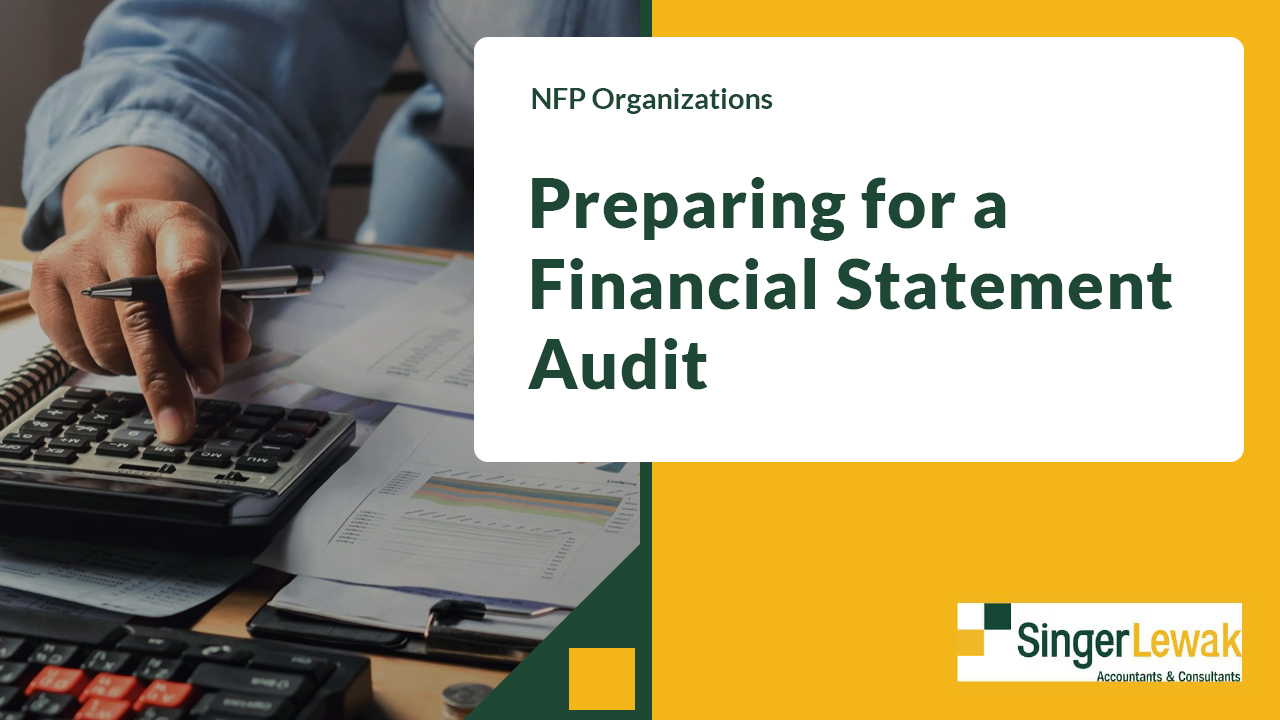Preparing for a financial statement audit can be challenging for not-for-profit organizations. Here are some tips to help:
Frequent Communication:
Establishing a consistent dialogue with your auditor is crucial for maintaining the integrity of your financial records. This practice allows you to promptly address any discrepancies or anomalies that may arise during the financial reporting process. By keeping your auditor informed about significant changes or unusual activities within your organization. Additionally, this continuous interaction helps build a transparent relationship, fostering trust and confidence in your financial management practices.
Board Involvement:
When engaging your board in the audit process, ensure they are fully briefed on the scope of the audit and its objectives. It is important for auditors to have access to the board to discuss any identified issues or weaknesses in internal controls, as well as the outcomes of their findings. This involvement allows for a higher level of oversight and accountability, promoting transparency and ensuring that corrective actions can be taken promptly. Regular updates during board meetings can help maintain focus on risk management and compliance efforts, fostering a culture of continuous improvement within the organization.
Review Internal Controls:
Evaluate and document your internal controls. Auditors will check their effectiveness in preventing or detecting errors and fraud. This involves assessing the design and implementation of your processes to ensure that they are robust enough to handle various financial transactions. You should identify any weaknesses or gaps in your controls and take corrective actions to strengthen them. Regularly reviewing and updating your internal controls will help maintain the integrity and reliability of your financial reporting, making the audit process smoother and more efficient.
Organizing documentation:
Consider categorizing documents by type and date. Use folders or binders with clear labels for easy identification. For digital records, create a structured system of folders and subfolders on your computer or cloud storage. Regularly update and back up these files to prevent data loss. Maintaining an organized record not only facilitates audits but also aids in efficient day-to-day operations and enhances transparency. Additionally, use accounting software that can automatically categorize and store financial documents, making retrieval faster. Implementing a consistent filing system ensures that every transaction is documented and traceable, reducing the risk of errors and discrepancies.
SingerLewak:
SingerLewak specializes in auditing nonprofit organizations, understanding their unique financial and operational challenges. The firm provides comprehensive audit services, including financial statement audits, compliance audits, and internal control assessments.
Additionally, SingerLewak offers advisory support for strategic planning, risk management, and governance. Our expertise, built on years of dedicated service and continuous professional development, has earned us recognition and trust from clients in navigating nonprofit financial management complexities.



